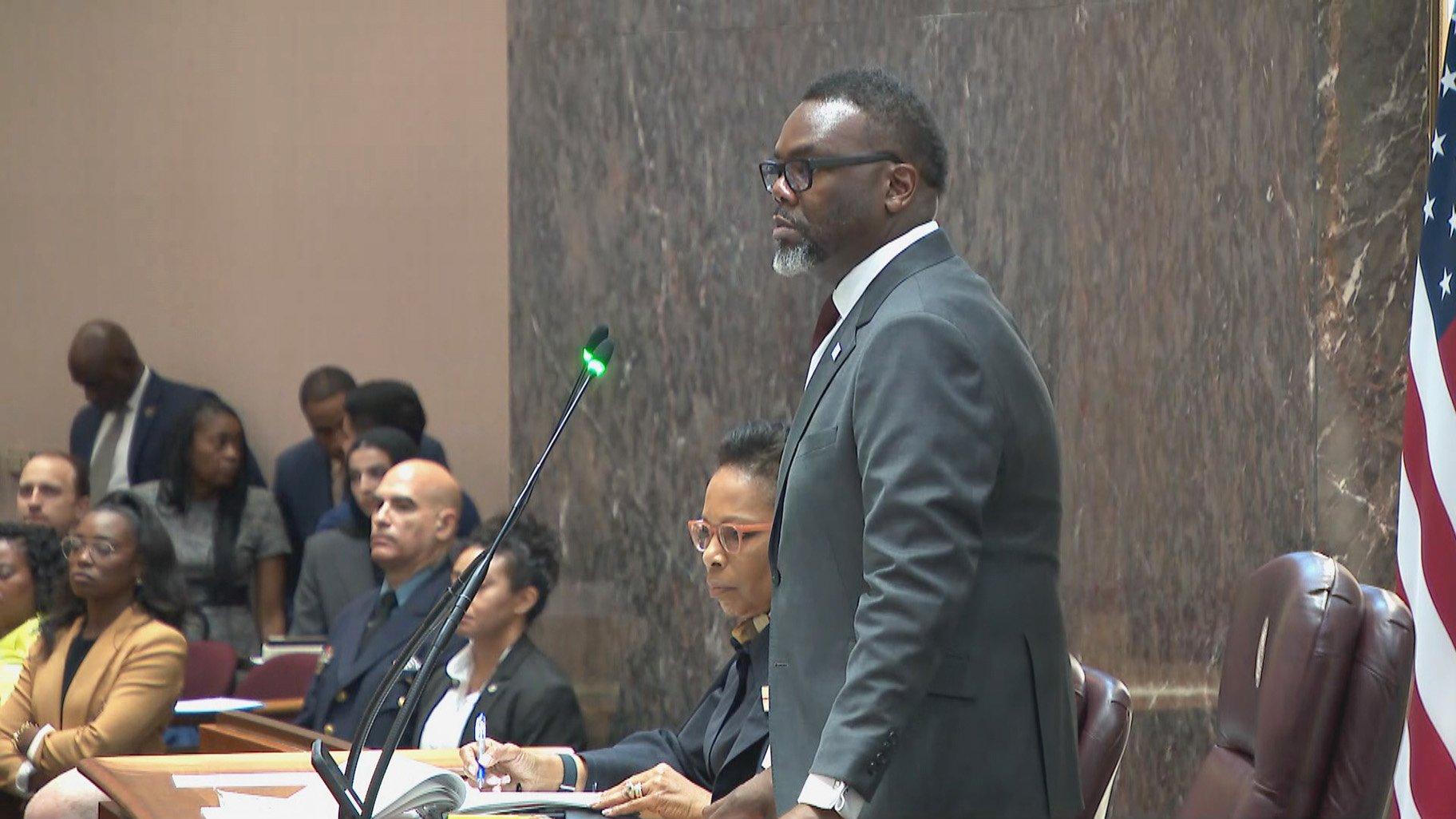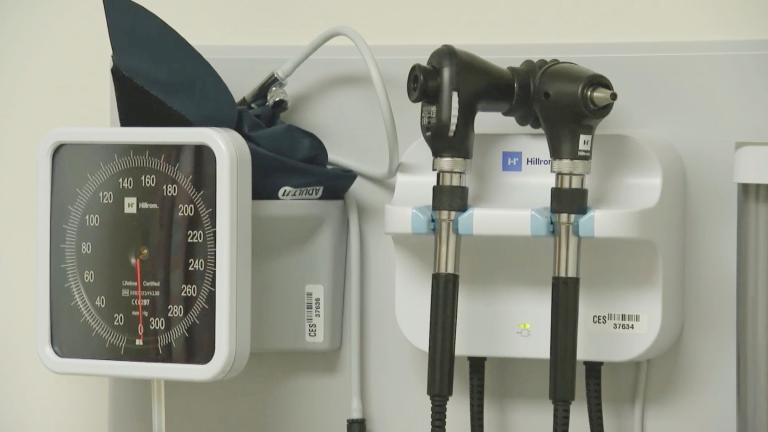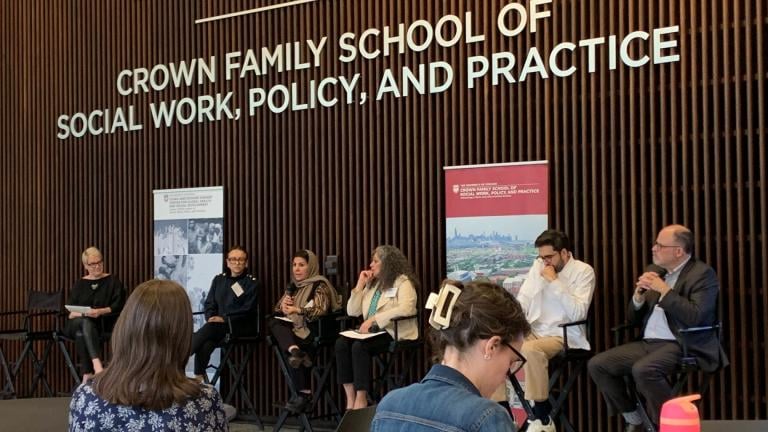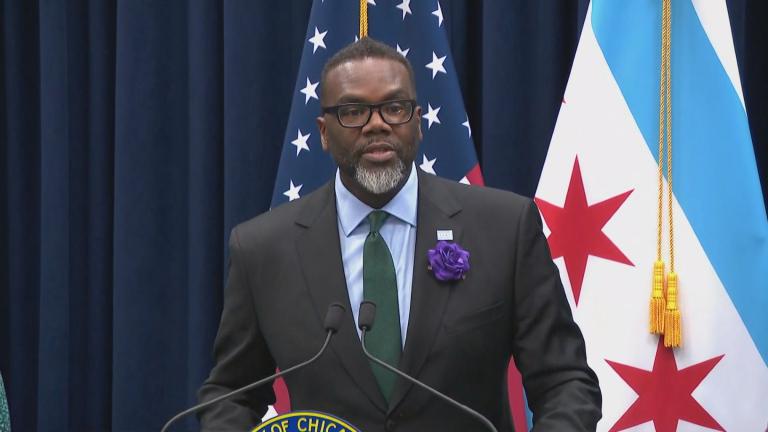 Mayor Brandon Johnson presides over the Nov. 15. 2023, Chicago City Council meeting as his budget is approved. (WTTW News)
Mayor Brandon Johnson presides over the Nov. 15. 2023, Chicago City Council meeting as his budget is approved. (WTTW News)
The Chicago City Council on Friday voted 30-18 to spend an additional $70 million to house, feed and care for the migrants sent to Chicago from the southern border after another impassioned debate that once again exposed the racial fault lines dividing Chicago.
In a separate vote, the City Council unanimously agreed to accept $48 million in federal and state grants to care for the migrants, who are in the country legally after requesting asylum. Most arrived in Chicago on buses paid for by Texas Gov. Greg Abbott, a Republican, as part of an effort to damage President Joe Biden’s chances for reelection and divide Democratic voters.
Ald. Andre Vasquez (40th Ward) said the fraught debate was exactly what Abbott and presumptive Republican nominee former President Donald Trump hoped would happen when the first bus rolled north from El Paso, Texas.
“The folks who are sending these buses want to see us fighting each other,” Vasquez said. “The whole goal is to divide us. Right now, everything is going according to plan.”
Officials expect it will cost an additional $321 million through the end of 2024 to care for the migrants. The City Council and the Cook County Board of Commissioners have approved plans to contribute $70 million each, and state lawmakers are expected to set aside $182 million as part of the state’s budget for the next fiscal year.
More than 39,600 people, many fleeing violence and economic collapse in Venezuela, have made their way to Chicago since August 2022. That has strained the city’s social safety net, ballooned the city’s budget shortfall and exacerbated tension between Chicago’s Black and Latino communities.
Several Black alderpeople said it was deeply painful to see the city spend hundreds of millions of dollars to care for the newest Chicagoans, many of them Latino, while they have lived in neighborhoods that have suffered from disinvestment for decades — with no end in sight.
Ald. Anthony Beale (9th Ward) pleaded with his colleagues to refuse to spend any more money to care for the migrants.
“If you cut off the funding spigot, they won’t come,” said Beale, falsely suggesting that Venezuelan authorities purposely sent those with criminal records to the United States.
Beale also urged his colleagues to instead spend these funds on the South and West sides, saying it would eliminate crime and violence.
“When are we going to help us?” Beale asked. “When are we going to help the people here?”
Ald. Desmon Yancy (5th Ward) said having to vote on this proposal felt like “strong-arm robbery.”
Thousands of migrants have settled — with the help of city, county, state and federal officials — in South Shore, which is part of the 5th Ward and was once a thriving Black neighborhood that now leads the city in evictions.
“I can’t cut off my nose to spite my face,” said Yancy, who voted in favor of the additional spending. “But Black Chicago is on life support.”
Ald. Mike Rodriguez (22nd Ward) reminded his colleagues that previous waves of immigrants — including those from Ireland, Itaty and Poland — faced similar prejudice but are now celebrated as integral parts of Chicago’s tapestry.
But other alderpeople said the city had an obligation to care for the approximately 8,900 migrants living in the city’s shelters — including more than 3,000 children.
“What happens to those children? Where will they go?” Ald. Jessie Fuentes (26th Ward) asked. “They are here in our care.”
Johnson urged the City Council to approve the additional funds to prevent chaos in the weeks leading up to the Democratic National Convention. City officials have been warning for more than a year that the convention — and its white-hot spotlight — will trigger a new surge of migrants to Chicago alongside the seasonal increase of people crossing the southern border to request asylum.
The vote came six weeks after Johnson pointedly declined to join Illinois Gov. J.B. Pritzker and Cook County Board President Toni Preckwinkle when they announced an agreement to set aside an additional $250 million to care for the migrants through the end of the year. That left a $70 million gap that the city has now agreed to fill.
The City Council’s vote acknowledged the fact that Chicago officials’ repeated and impassioned pleas for help from the federal government in addressing the humanitarian crisis engulfing the city had fallen on deaf ears, alderpeople said.
Contact Heather Cherone: @HeatherCherone | (773) 569-1863 | [email protected]








